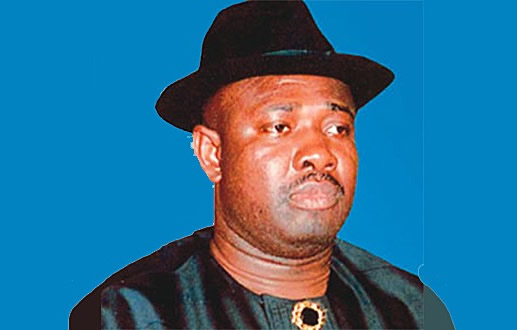
The Federal Government is contemplating taking control of all dormant oil wells from operators who are not utilizing them, as a response to the decline in the country’s oil revenue.
The Minister of State for Petroleum Resources (Oil), Heineken Lokpobiri, made this revelation during an event organized by The Petroleum Club in Lagos.
According to Lokpobiri, Nigeria has suffered a loss of approximately $30 billion in the past two and a half years due to low oil production.
In his address, Austin Avuru, the Chairman of The Petroleum Club, expressed concerns about the diminishing oil production in Nigeria and discrepancies in production figures reported by the government and the Organization of the Petroleum Exporting Countries.
Lokpobiri highlighted the impact of the Seplat/ExxonMobil crisis on Nigeria’s crude oil production, resulting in a daily loss of about 480,000 barrels.
The ongoing crisis arose following the failed $1.6 billion sales agreement deal between ExxonMobil and Seplat Energy in 2022, attributed to the Nigerian Upstream Petroleum Regulatory Commission exercising its right of pre-emption.
Lokpobiri emphasized the need for increased investment in production to enhance revenue generation, aligning with the directive given by President Bola Tinubu.
To address the stagnant oil production, Lokpobiri aims to reallocate idle wells in accordance with the Petroleum Industry Act, thereby boosting overall production in the country.
The minister also expressed readiness to revoke licenses of companies that have not commenced production, intending to prevent license holders from hoarding assets without utilizing them for exploration.
He urged stakeholders to adhere to work plans and actively engage in oil production to avoid license cancellations, emphasizing the importance of maximizing asset productivity for increased local production.
Lokpobiri encouraged members of the club to explore alternative funding options for the oil sector, highlighting the success of similar strategies in the Middle East as a model for self-sufficiency in investments.
“Pooling your resources together instead of pursuing individual paths could lead to funding various assets in this sector, offering a potential alternative to our current challenges,” expressed a speaker.
He pointed out the contrasting financial situations between the West and the Middle East, which have oil-generated funds for investment expansion, and Nigeria, which lacks such resources. He suggested a strategy of starting investments in the upstream sector and progressively moving to midstream and downstream sectors, emphasizing the importance of a diverse investment portfolio.
With a vision for local oil production, the former lawmaker envisioned operational refineries in Port Harcourt, Warri, Kaduna, the upcoming Dangote Refinery, as well as multiple modular refineries. This would not only cater to Nigeria’s domestic needs but also extend to the wider West African region.
Regarding the proposed African Energy Bank, he expressed the government’s commitment to establishing its headquarters in Nigeria. The decision between Nigeria and Ghana hosting the bank rested on their readiness to support its operations, with significant economic potential for the chosen country.
Emphasizing the importance of bolstering local banks, he urged collaboration to strengthen financial institutions, highlighting government efforts to attract investments by streamlining industry processes. He also mentioned resolving issues like the Malabu Oil Field dispute.
Encouraging foreign investments, he highlighted the need to leverage resources efficiently to prevent them from being underutilized. The government’s stance on investments emphasized a welcoming environment for investors, promoting a cycle of investment and divestment.
Expressing optimism for increased production capacity, he aimed to surpass the current 2mbpd output with sincerity and dedication. Mentioning a recent investment hurdle in the Bonga North oil project due to ongoing conflicts, he highlighted the importance of resolving such issues for sector growth.
Recent reports by OPEC indicated a decline in Nigeria’s oil production, a challenge being actively addressed to stimulate growth in the sector, stated the minister.
